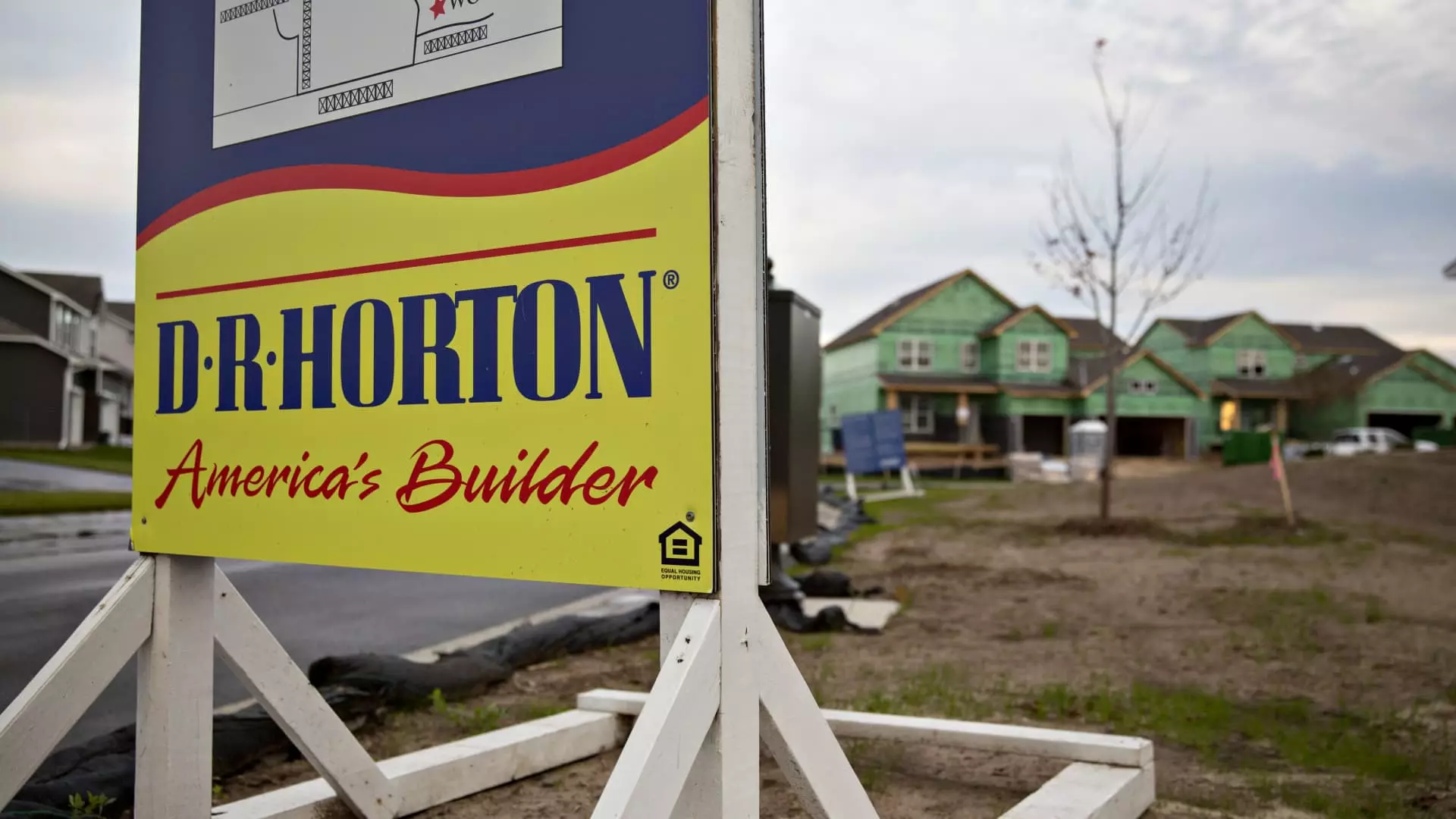The latest financial disclosures from D.R. Horton have raised alarm bells about the current trajectory of the housing market and broader economic implications. As a prominent homebuilder headquartered in Arlington, Texas, D.R. Horton reported quarterly earnings that fell short of Wall Street expectations, indicating possible turbulence ahead for both consumers and the economy. With interest rates remaining high and volatile, CEO David Auld expressed concerns that potential homebuyers are hesitant to proceed with purchases, anticipating a drop in rates by 2025.
Currently, the interest rate for a 30-year fixed mortgage stands at approximately 7%, which, while an improvement from last year’s peak of 8%, remains elevated compared to historical standards. This stagnation in rates can be attributed to rising yields on the 10-year Treasury note—the primary benchmark for mortgage interest rates—which have spiked as strong economic indicators conflict with expectations of forthcoming cuts from the Federal Reserve. This disconnect leads to uncertainty, causing many potential buyers to adopt a wait-and-see attitude.
D.R. Horton’s Underwhelming Results and Forecast
D.R. Horton’s financial results for the fiscal fourth quarter revealed earnings per share of $3.92 on revenues of $10 billion. Analysts had anticipated slightly better figures, forecasting earnings of $4.17 per share and revenues of $10.22 billion. The company’s revenue projections for the fiscal year ending in September 2025 are even less optimistic, with estimates between $36 billion and $37.5 billion—falling short of FactSet’s consensus estimate of $38.91 billion. Such a shortfall has led to a significant decline in D.R. Horton’s stock, plummeting by 11% following the announcement.
This disappointing performance has triggered a ripple effect throughout the homebuilding sector, with other key players like Toll Brothers, Pulte Group, and KB Home seeing their stocks dip by about 4%. Furthermore, the S&P Homebuilders ETF, which reflects the health of the homebuilding market, dropped by 3%, signaling that investor confidence is waning.
The Broader Impact on the Housing Market
As the housing market confronts these challenges, the implications for consumers and the economy become increasingly pronounced. The combination of high interest rates and cautious consumer sentiment could deter potential buyers from entering the market. This slowdown not only stifles residential construction but could also impact related sectors, such as home improvement retailers like Home Depot and Lowe’s, both of which experienced declines in stock prices post-announcement.
The scenario is grim; potential homebuyers are caught in a bind between the current high mortgage rates and the expectation of more favorable conditions in the future. If these trends continue, the housing market could experience a stagnation reminiscent of past downturns, ultimately affecting economic growth.
D.R. Horton’s latest financial figures underscore the complicated interplay between interest rates and consumer behavior in the housing market. As both builders and buyers navigate this uncertainty, the need for strategic planning becomes paramount in mitigating potential risks and fostering a healthier economic environment. Without adjustments in the current interest rate climate, we could likely see further implications for consumers and the broader economy.


Leave a Reply